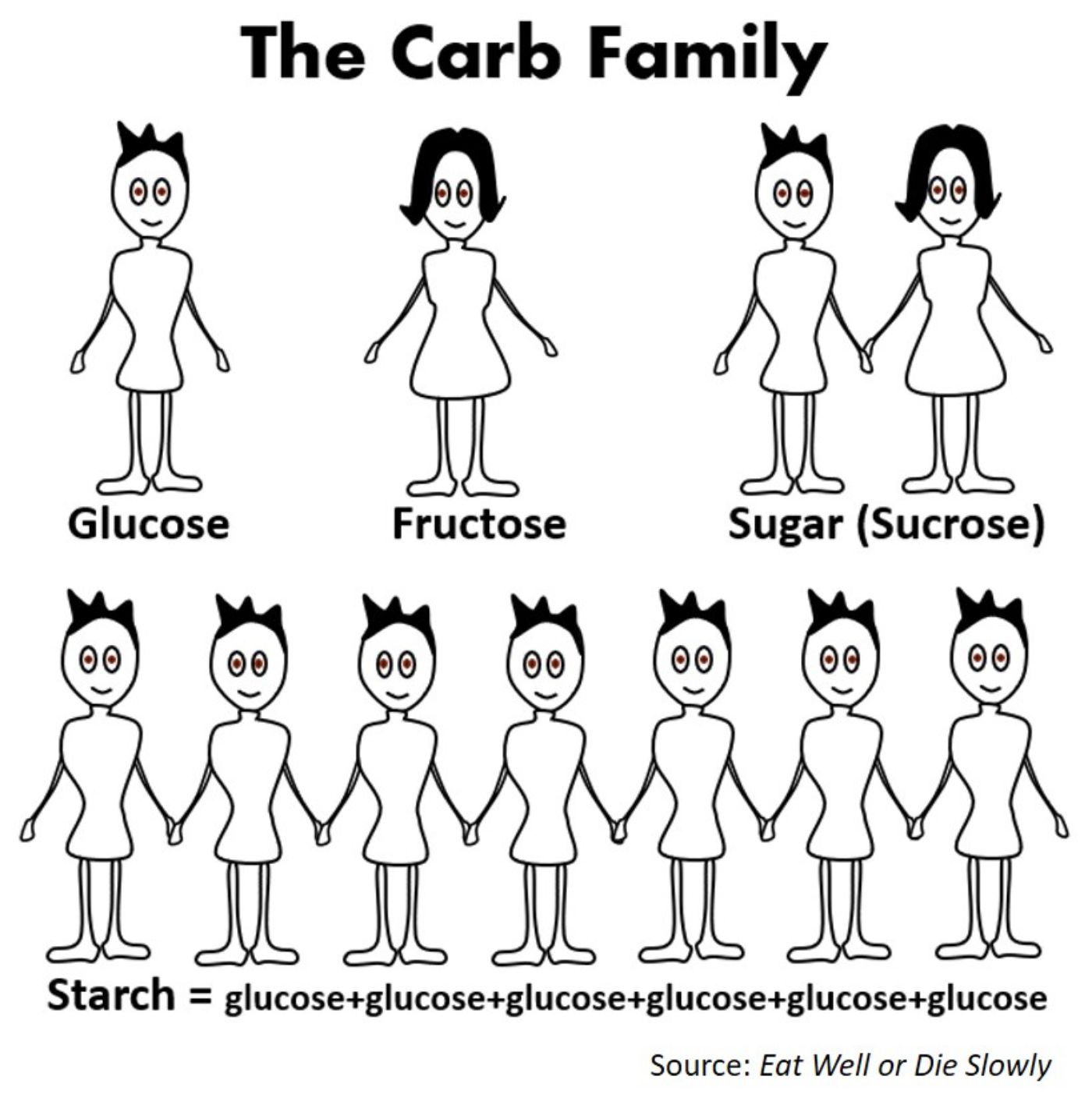Sugar and Starch Addiction

Written by Dr Estrelita van Rensburg
Introduction - sugar and starch addiction
Sugar and starch are both carbohydrates. They are found in most of the processed food and drink items that we buy in the supermarket. In fact, we are so fond of carbohydrates that it roughly makes up 65% of our daily calorie intake. For some of us, it has become an addiction. We just can't live without chocolates, biscuits, bread, breakfast cereal or sometimes fizzy drinks.
Isn’t it interesting that, throughout all our existence, humans have been lean? It is only over the last number of decades that obesity has become a worldwide phenomenon of epidemic proportions. The increase in obesity occurred immediately after we started eating more carbohydrates (sugar and starch) and processed foods as recommended in the nutritional guidelines. These were implemented in most western countries in the 1980s (see also Chronic illness).
Meet the sugar and starch family
When we eat carbohydrates such as sugar or starch, our digestive system breaks down these foods into their primary building blocks. These are mostly 'glucose' and, in the case of fruit, they also contain 'fructose'. When one molecule of glucose and fructose “holds hands”, it forms sugar.
A long string of only glucose molecules holding hands is called starch. The most common forms of starch are found in rice, pasta, wheat products and other grains (including breakfast cereals and bread) and potatoes.
Glucose and fructose are absorbed from our gut into the bloodstream from where they are transported to cells. Glucose is used for energy production or other metabolic processes.
Impact of sugar and starch on our metabolism
Sugar and starch are both powerful appetite stimulants. That means, by inhibiting the hormone Leptin (the feel-full hormone), they tell the brain that we need to eat more. On the other hand, protein and fat do the opposite. Through the hormone Leptin, they send a signal to the brain to stop over-eating.
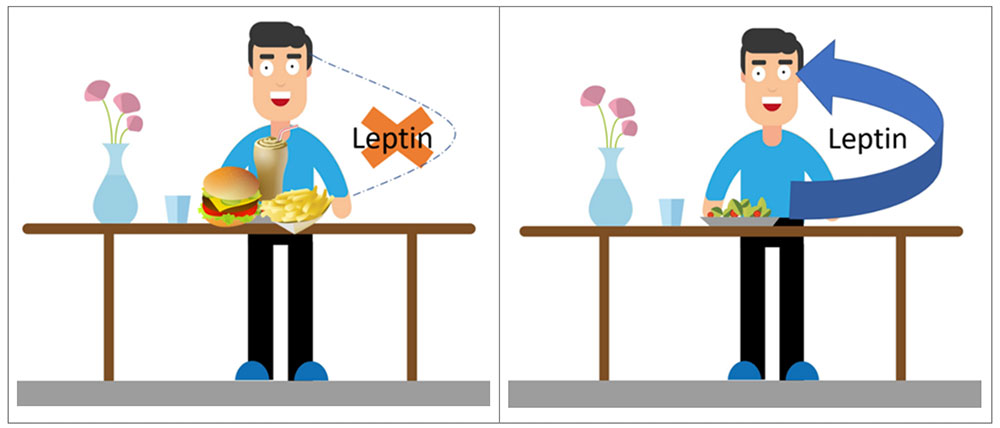
While sugar and starch are bad for stimulating Leptin, they are very good at stimulating the release of the hormone insulin from our pancreas. Insulin has many functions, but two specifically are important here.
Firstly, insulin stores fat from any excess sugar and starch calories that we eat. Therefore, it is also known as the 'fat-building' hormone.

Secondly, it helps glucose, the primary building block of sugar and starch, to enter our cells. Insulin works like a door opener - it facilitates the entry of glucose into cells. When the door opens without problems, we are insulin sensitive. Inside cells, glucose is used for energy production.
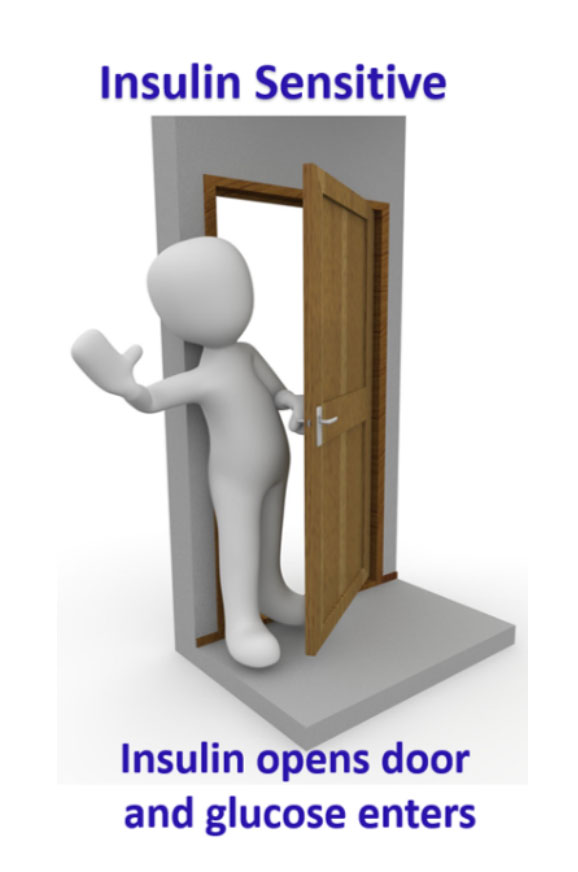
Is sugar or starch essential for life?
Of the three macronutrients (protein, fat and carbohydrates), only carbohydrates (sugar and starch) are non-essential for life. This fact should really make us think, because sugar and starch make up most of the diet of so many people today.
One may ask, if we don't eat carbohydrates, from where will our bodies then obtain glucose? Moreover, we often hear that glucose is an important fuel for our brain and other organs. As it happens, glucose can be produced by the liver from fat and protein by a process called 'gluconeogenesis' meaning 'new glucose'. It is therefore perfectly safe to restrict or eliminate sugar and starch from our diet.
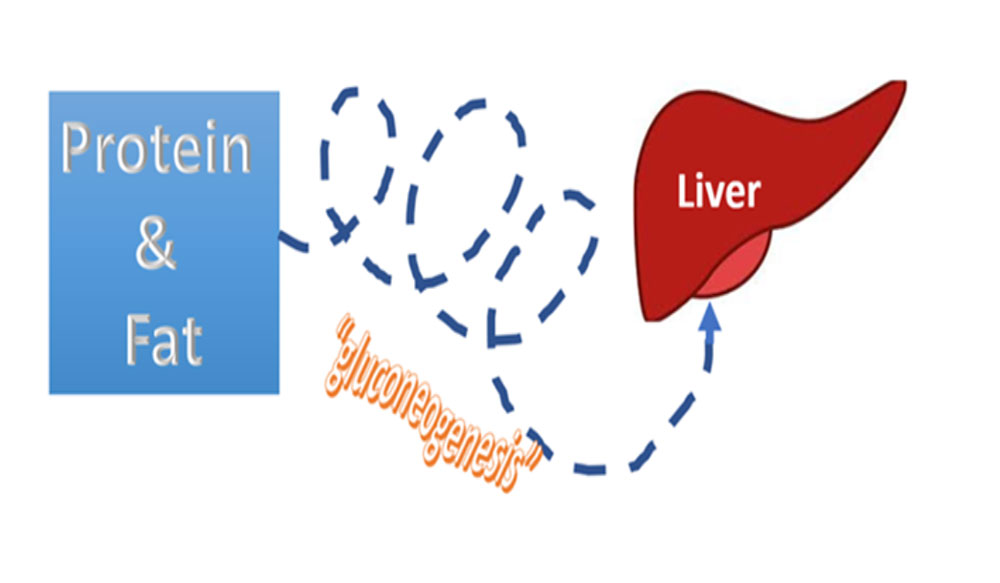
What happens when we eat a lot of sugar and starch?
Over the long term, when we eat large amounts of sugar and starch, such as the modern western diet of highly processed carbohydrate-rich foods, many develop a condition called 'insulin resistance' or pre-diabetes.
When this happens, glucose can no longer effectively enter through the door into our cells. The reason being that the function of insulin is impaired (door is closing).
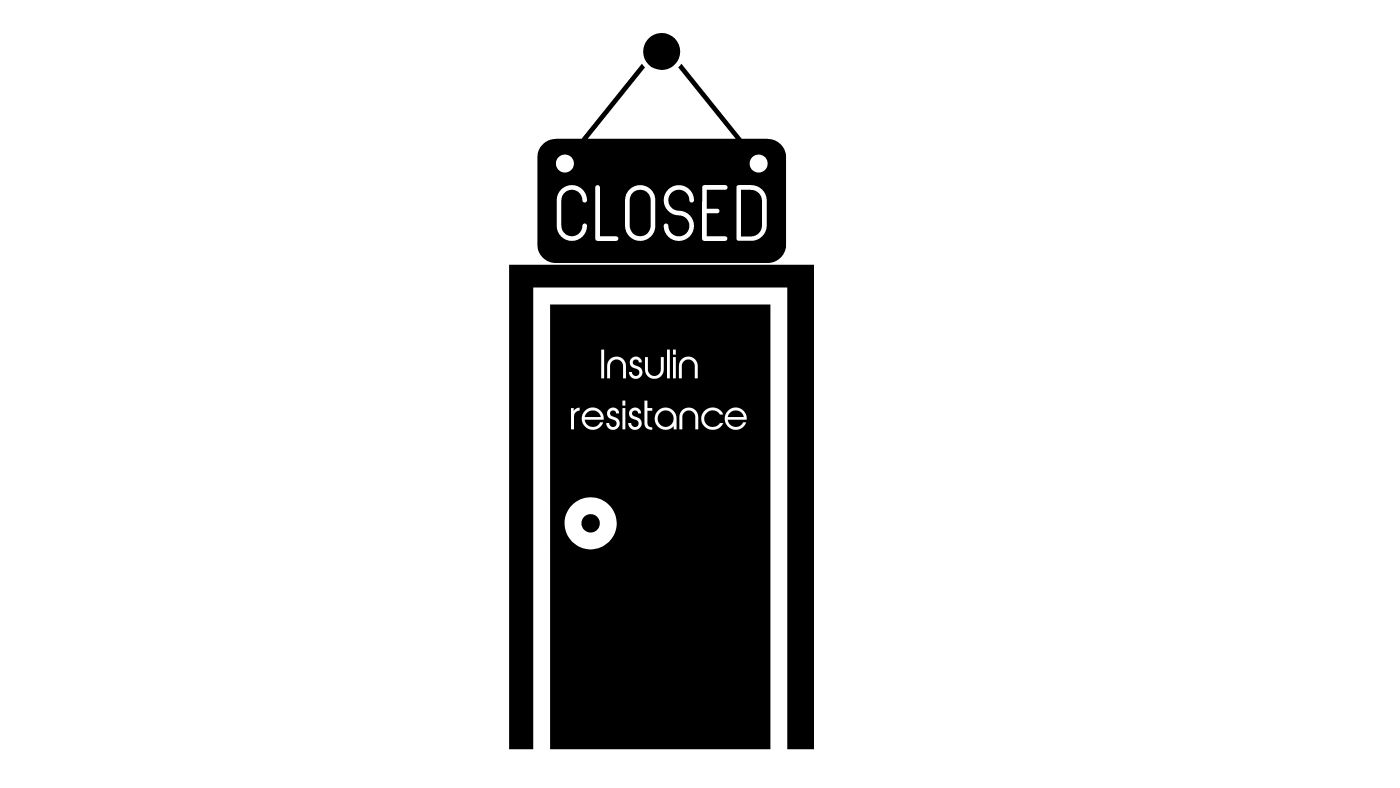
Insulin resistance - glucose can't efficiently enter cells
Insulin resistance is the hidden metabolic abnormality underlying many of the chronic illnesses of today. Many of these illnesses are currently reaching epidemic proportions (obesity, type 2 diabetes, high blood pressure, heart disease, dementia etc).
Chronic illnesses associated with insulin resistance
Insulin resistance is the precursor condition of many chronic illnesses such as obesity, type 2 diabetes, hypertension, cancer and Alzheimer's dementia. It may take many years even decades for one or more of these diseases to develop.
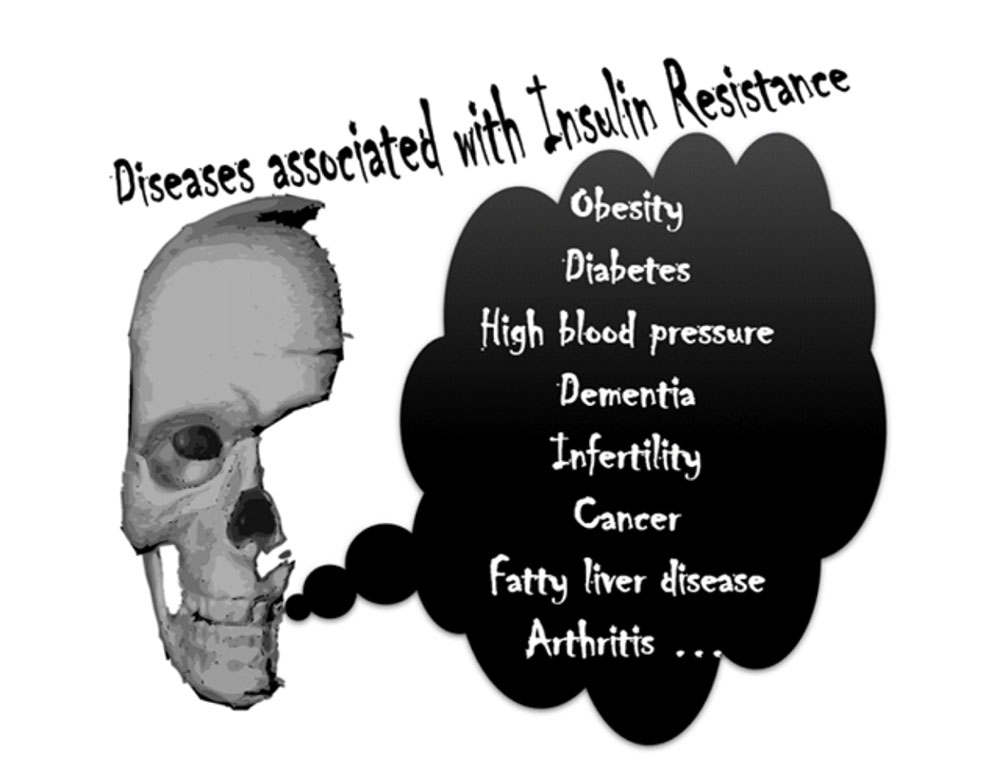
How to treat insulin resistance?
Insulin resistance cannot be treated with drugs. Medication will only treat symptoms, never the underlying condition.
The only way to make a difference is by changing your diet. Remove all the junk food (processed refined carbohydrates such as sugar and starch, sweetened food and drinks). This will lead to a decrease in insulin levels.
Our specially designed COURSES will teach you a step-by-step method of how and what to eat to become healthy. It will even help to reduce and, in some cases, stop the need to take medication for these lifestyle diseases.

